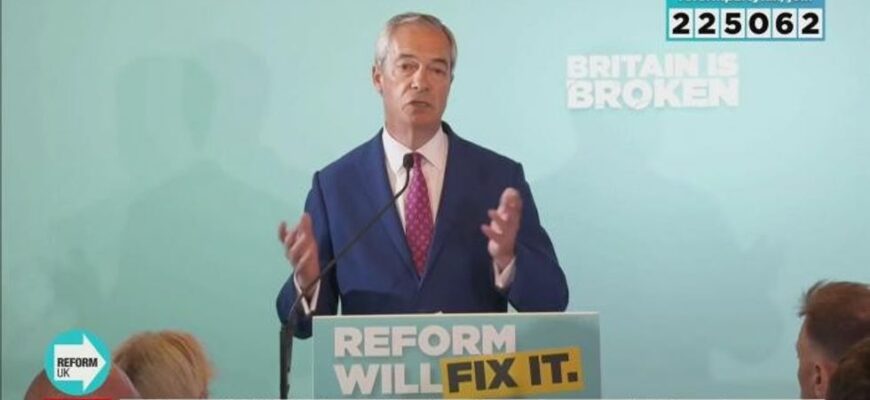## Reform UK Eyes Potential Breakthrough in Local Elections
Reform UK is campaigning with ambitious goals, hoping to trigger a significant shift in British politics during next Thursday’s local elections. The party’s grassroots movement anticipates a surge of support – a “turquoise tidal wave” – that could severely challenge the Conservative Party.
Conservative leader Kemi Badenoch has publicly acknowledged the precarious situation her party faces, stating that “nowhere is safe” ahead of the vote. This admission comes as the Tories approach what many see as a critical electoral test, particularly in areas traditionally considered strongholds for the party.
Kent: A Key Battleground
The county of Kent, known as the “Garden of England,” has emerged as a crucial indicator of Badenoch’s prospects. Electoral Calculus predicts Reform could secure 41 out of 81 seats in Kent (representing 29% of the vote), compared to just 25 for the Conservatives (27%). The Liberal Democrats are projected to win nine seats (12%), and Labour only three (19%).
Rising Momentum & Candidate Confidence
Reform candidates across the region are reporting a palpable sense of optimism. One self-described “true blue Tory” admitted concerns about Reform’s growing influence earlier this year, while another confidently told GB News: “Reform is going to absolutely wipe the floor here next week. There’s no doubt about it.”
Max Harrison, a former candidate, believes the Labour Party’s support is dwindling and anticipates a collapse of the Conservative vote, stating, “All candidates across the country are saying the same things as myself…we think we’ve got a really good chance of having a turquoise tidal wave here in Britain.” He further predicted Reform would become the largest party in Wales next year.
Polls & Reactions
While recent polls suggest significant gains for Reform, some Conservatives are downplaying the predictions. Conservative Councillor David Beaney stated he “just not seeing the move that polls are saying,” while Liberal Democrat leader Antony Hook expressed satisfaction with his party’s progress and expects to win “a number of seats” in Sevenoaks and Tunbridge Wells.
Migration Concerns Dominate
As expected in a coastal county, migration is a primary concern for voters. Reform candidate Harrison, speaking from Shepperton, emphasized that even without direct boat arrivals, residents are “sensing” and “feeling” the impact of immigration, stating “Hundreds and hundreds of these men break into our country daily.”
However, other candidates like Conservative Councillor Beaney and Reform’s Dirk Ross believe migration is a widespread national issue.
Upcoming Protests & Policy Proposals
The local elections coincide with planned protests in Dover aimed at “stopping the boats,” prompting Kent Police to deploy additional resources. Nigel Farage has unveiled a four-point plan to address the Channel crossing crisis, including withdrawing Britain from the European Convention on Human Rights and the Human Rights Act.
Beyond Kent: A National Revolution?
Reform’s ambitions extend beyond Kent, with potential gains anticipated in Derbyshire, Doncaster, Durham, Lancashire, Northumberland, Nottinghamshire, and Staffordshire. Even Andrea Jenkyns, a Tory defector, is predicted to perform well in the Greater Lincolnshire mayoral contest.
A Potential Shift in Power
According to Martin Baxter, founder and CEO of Electoral Calculus, “British politics is in a very unusual state of flux…it’s impossible to say definitely which [party] will fall behind.” While he cautions that Reform could “peak” and decline, he also suggests the possibility of Conservatives dwindling, leaving Labour and Reform as the dominant forces.
Ultimately, these local elections represent a crucial test for Farage’s leadership and an opportunity to demonstrate Reform’s ability to deliver on its promises – potentially paving the way for a future national breakthrough.









